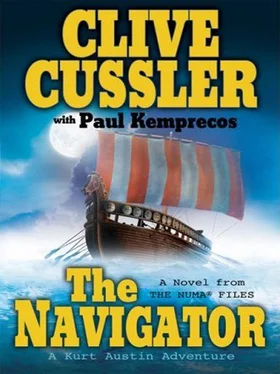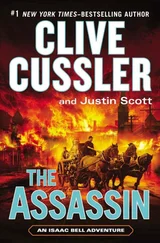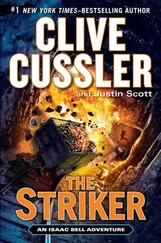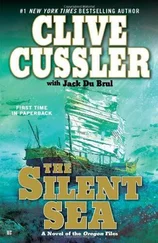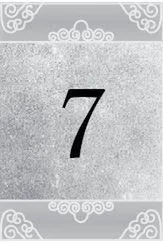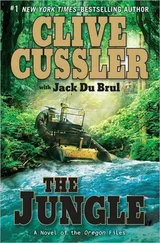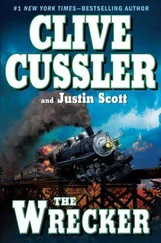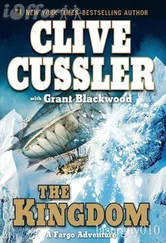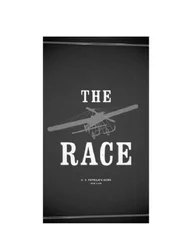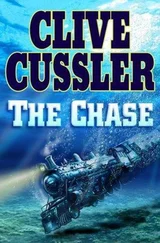Tomorrow could not come too soon. Within hours, the onerous burden of office would be shifted to the narrow but capable shoulders of his friend James Madison.
He savored another sip and returned to the papers spread out on his desk. Written in the same flowing hand that had penned the Declaration of Independence were specimens, arranged in columns, of more than fifty Indian vocabularies collected over a thirty-year period.
Jefferson had long been obsessed with the question of how the Indians came to North America and had spent years compiling lists of words commonly used in Indian languages and dialects. His theory was that similarities between words from the Old and New World might offer a clue to the Indians’ origin.
Jefferson had shamelessly exercised his presidential power in pursuit of his obsession. He had once invited five Cherokee chiefs to a White House reception and quizzed them about their language. He had instructed Meriwether Lewis to collect vocabularies from the Indians the explorer encountered on his historic journey to the Pacific Ocean.
The book Jefferson planned to write on the origins of the Indian would be the culmination of his intellectual career. The tumultuous events of his second term had temporarily stalled the project, and he had put off sending the lists to the printer until he could write digests of the reams of new material Lewis and Clark had brought back from their trek.
Vowing to tend to the task as soon as he was back at Monticello, he stacked the papers into a neat pile, tied it with string, and placed it with the other vocabularies and stationery in a sturdy trunk. It would be transported with his belongings to the James River and loaded onto a boat that would take his baggage to Monticello. He placed the last packet of documents in the trunk and snapped the cover shut.
His desk was clear now except for a pewter box that had his name embossed on the lid. The president opened the box and removed a rectangular piece of vellum about ten by twelve inches in size. He held the soft animal hide close to an oil lamp. The pebbled surface was covered with strange writing, wavy lines, and Xs. One edge was ragged.
He had acquired the vellum in 1791. He and his Virginia neighbor “Jemmy” Madison had ridden on horseback to Long Island, New York, to meet some impoverished remnants of the Unkechaug tribe. Jefferson had hoped to find someone who knew the ancient languages of the Algonquin tribe, and, in fact, three elderly women could still speak the old language. Jefferson had compiled a glossary from them that he hoped would help prove his thesis about the European origin of the Indians.
The chief of the tribe had presented Jefferson with the vellum, saying it had been passed down from generation to generation. Touched by the gesture, Jefferson had asked a rich landowner and fellow signer of the Declaration to provide for the Indians.
Looking at the vellum now, an idea occurred to him. He took it over to a table, where a horizontal wooden easel had two pens suspended from a framework that allowed them to move simultaneously. Jefferson regularly used this copying machine, known as a polygraph, for his voluminous correspondence.
He copied the vellum markings and added notes asking the recipient to identify the language in which the words were written. Then he addressed and sealed the envelopes and placed them in a basket for outgoing mail.
The Unkechaug word lists were packed with the other papers in the trunk. Jefferson wanted to keep the vellum close, and he placed it back in the box. He would carry the box in his saddlebags on the ride to Monticello. He glanced at the wall clock again, drained his wineglass, and rose from his chair.
At the age of sixty-five, Jefferson hadn’t an ounce of surplus flesh on his farmer’s body. His thick hair was going from reddish blond to sandy gray as he aged. With his square-shouldered, musket-barrel posture and six-foot-two-inch height, he would always be an imposing figure. Inflammatory arthritis was making inroads, but, after he worked the stiffness out of his limbs, his movements were flexible and easy, and he moved with the grace of a younger man.
He lit his night candle and made his way along the silent White House corridors to his bedroom.
Up at dawn, he rode to the new president’s inauguration with his usual lack of pomp and ceremony. With a touch of his hat, he simply galloped past the waiting cavalry escort, dismounted near the Capitol, and hitched his horse to a picket fence. He sat with the public during the inauguration. Later, he paid a farewell visit at the White House. At the inaugural ball he danced with Dolley Madison.
The next day he finished packing, making certain in particular that the trunk with his Indian material was on the wagon that would take it to the James River. Setting off on horseback for Monticello, he rode eight hours through a driving snowstorm in his eagerness to resume life as a country gentleman.
The watcher stood in the shadow of a snow-covered oak tree near the edge of the James River, where several cargo boats were tied up for the night. Raucous laughter emanated from a nearby tavern. The voices were growing louder, and he judged from personal experience that the boat crews had reached the last stage before drinking themselves senseless.
He emerged from the protection of darkness and made his way over the snow-covered ground to a boat that was outlined faintly in the flickering light of its stern lantern. The fifty-foot-long bateau was a narrow, flat-bottomed craft designed to move tobacco along the river.
He stood on shore and called out, receiving no answer. Enticed by the prospects of drink, a warm fire, and female company, the captain had gone ashore with the two pole men who worked the riverboat. Crime was practically unknown in this remote part of the river, and none of the boats felt the need to leave crew aboard on this cold night.
The watcher padded up the ramp and used the lamp hanging from the stern to light his way as he ducked under an arched awning covering the central part of the deck. The awning sheltered more than two dozen bundles stenciled with the initials TJ . He set the light down and began to go through the baggage and boxes.
He pried a trunk open with a knife and pulled out a handful of the papers neatly packed inside. As he’d been instructed, he stuffed the papers into a large sack and threw a handful onto the riverbank. He tossed more papers into the river, where they drifted out of sight on the swift currents.
The man grinned at his accomplishment. With a quick glance toward the noisy tavern, he crept silently down the gangway onto the riverbank and melted like a ghost into the darkness.
SOON AFTER, Jefferson was returning to Monticello with friends and saw his house slaves unloading boxes from a wagon drawn close to the mansion’s columned entrance. As he rode closer, he recognized a stocky, bearded figure as the captain of the James River boat carrying his baggage from Washington.
He dismounted and strode to the wagon, but, in his excitement at seeing his baggage arrive, he didn’t notice the boatman’s stricken expression. He rapped his knuckles on the side of the wagon. “Good work, Captain. All arrived safe and sound, I see.”
The captain’s round face crumpled like an overripe pumpkin. “Not all, I’m sorry to say, sir,” he mumbled.
“What do you mean?”
The captain seemed to shrink into himself. Jefferson towered over the riverman by several inches and would have been a formidable figure even if he hadn’t been the former president of the United States. He seemed to bore holes right through the hapless captain with eyes almost luminous in their intensity.
As the riverman told his story, he wrung his hat so tight it was a wonder that he didn’t tear it into pieces.
Читать дальше
